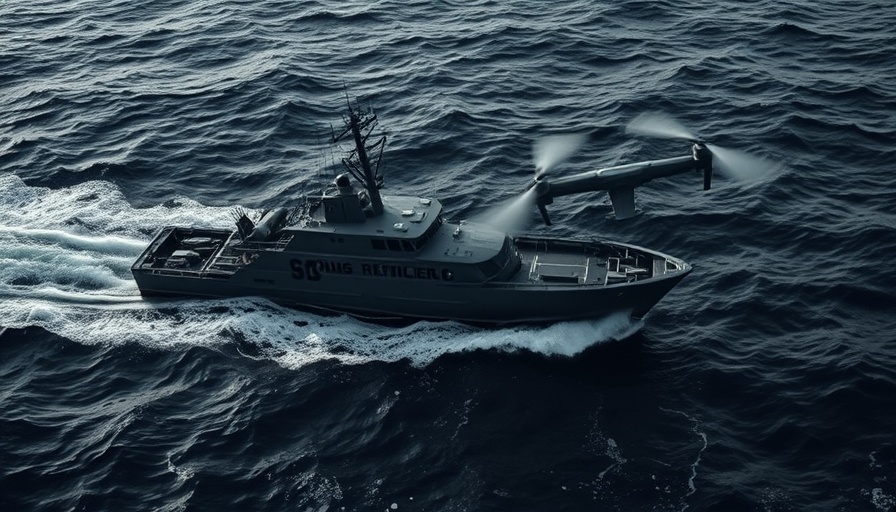
The US Targets Drug Trafficking: A Bold Military Move
Dramatic footage recently shared by President Trump shows the US military striking a boat off the coast of Venezuela, allegedly carrying narcotics and members of the Tren de Aragua criminal organization. This incident underscores the ongoing battle against drug trafficking and terrorism under the banner of narcoterrorism, reflecting the escalation of US military actions abroad in combating organized crime. The boat, reported to have been carrying 11 individuals labeled as 'narcoterrorists,' was obliterated by a single missile strike, raising questions about the implications of such military interventions.
Understanding Tren de Aragua: The Emerging Threat
Tren de Aragua, a Venezuelan gang, has increasingly gained notoriety for its involvement in drug trafficking, human smuggling, and violence throughout Latin America and into the United States. Classified by the US State Department as a Foreign Terrorist Organization, its operations have been described as brutal and extensive. The group is believed to operate with impunity under the protection of Nicolás Maduro's regime, instigating an international crisis by exporting drugs and violence beyond its borders. The US military’s decisive action signals a significant shift in strategy towards actively confronting such transnational criminal enterprises.
The Global Impact of US Military Action Against Drug Trafficking
While Trump's administration celebrates this strike as a victory against narcotrafficking, the broader implications for US foreign policy are profound. Internationally, such military interventions can be seen as a form of aggression that risks conflict escalation in regions already fraught with instability. Critics point out that unilateral military actions often fail to address the root causes of drug trafficking, such as poverty, corruption, and a lack of opportunities in home countries. This one-time incident raises important discussions about the efficacy of military might versus diplomatic measures in curbing international drug trafficking.
The Role of Media in Shaping Public Perception
The dissemination of dramatic footage from the strike serves a dual purpose: to inform the public and to shape narratives around national security. Social media platforms allow for instant access to information, fueling public debate and influencing perceptions about military interventions. The striking images can evoke a strong emotional response, leading to increased support for tough stances against crime and terrorism. However, this raises ethical concerns regarding the sensationalization of violence and its potential to desensitize viewers to real human suffering.
Future Predictions for the Drug Warfare Strategy
With this resolution against the Tren de Aragua group, there arises the question of what the future may hold for similar actions. Will these become routine responses to transnational crime, or will the US pivot to a strategy that emphasizes cooperation with other nations? Experts suggest that ongoing military involvement may not produce lasting results without fostering regional alliances and supporting socioeconomic development in affected areas. Moving forward, investments in international collaboration could prove crucial in dismantling drug trade networks effectively.
What This Means for US-Venezuela Relations
This military strike, while focusing on narcotrafficking, further complicates an already strained relationship between the US and Venezuela. The Maduro regime's response is likely to assert sovereignty and denounce US interventions, reinforcing anti-American sentiments that have characterized Venezuelan politics for years. As the US navigates its approach to Venezuela, the importance of diplomatic relations remains a contentious topic among policymakers.
Conclusion: A Call for Comprehensive Strategies
As the world scrutinizes the implications of such military actions, it becomes evident that a multifaceted approach is essential in addressing narcotrafficking. While military force may provide immediate results, longer-term solutions will require addressing the socio-political conditions that give rise to these criminal organizations. The recent US strike is not merely a tale of military might; it predicates a broader conversation about how nations engaged in drug wars can cooperate effectively, leading to sustainable outcomes.
 Add Element
Add Element  Add Row
Add Row 



Write A Comment